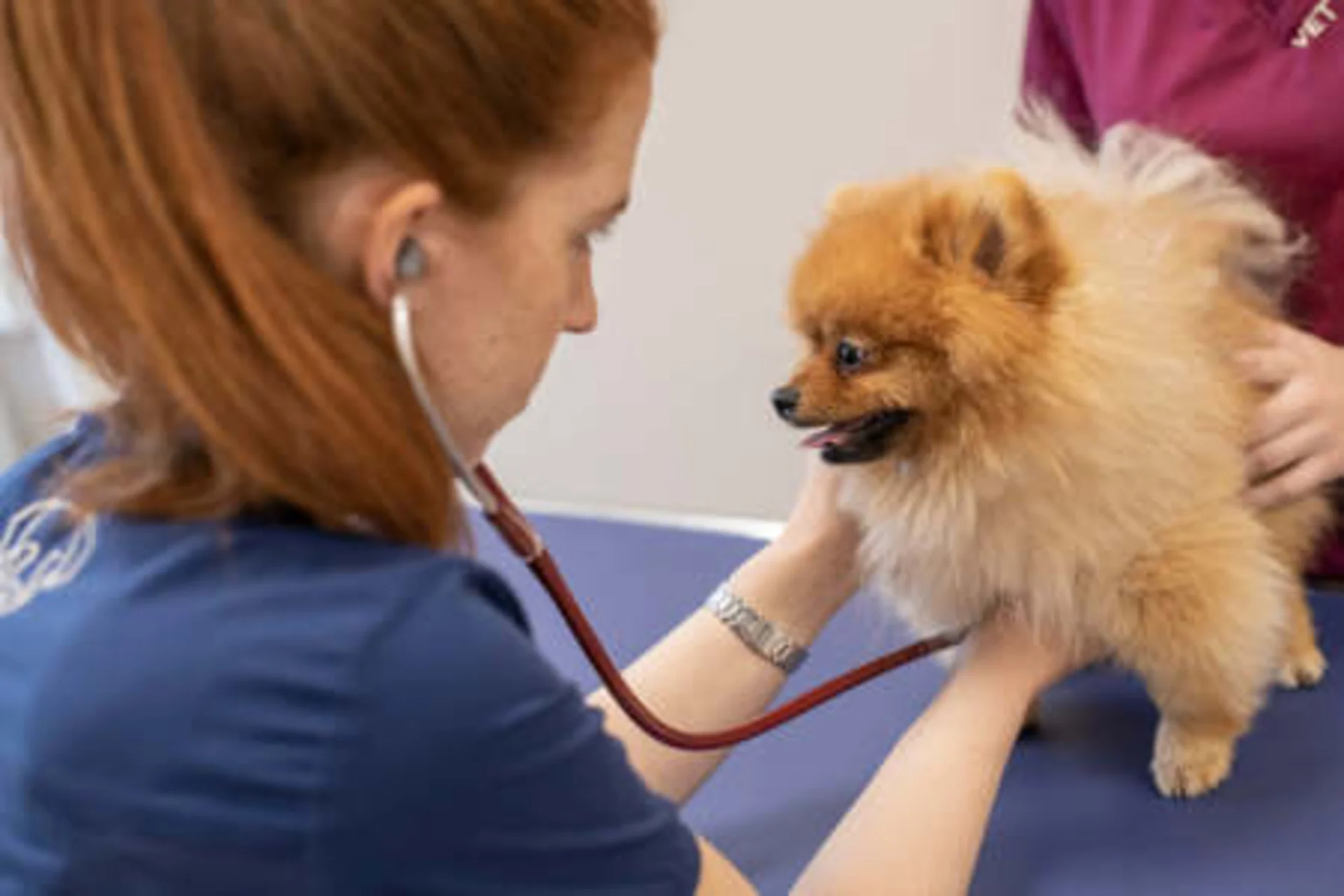
Prevention is care
med. vet. Gabrielle Brunner
02.01.2022
Prevention is care
Not only proper nutrition, sufficient exercise, and mental stimulation are essential for the healthy care of cats and dogs. Our regular health check-up is also a key component. It allows us to detect diseases early, even when there are no noticeable signs in everyday life, and helps promote your pet’s health.
How often is a health check-up necessary?
The value of a preventive examination lies in its regularity, as serious illnesses can often spread quickly and unnoticed. That’s why a health check-up, including comprehensive blood and urine tests, is beneficial at any age. In younger animals, it also helps us establish baseline values for future comparisons.
For older, more disease-prone pets, we recommend repeating the check-up annually. Senior age begins for dogs between five and seven years (depending on size and breed), and for cats between seven and nine years.
What does the health check-up involve?
Your pet should come to our clinic fasting for the check-up, but no other preparation is needed. After the examination, we will discuss the results with you. If we find indications of a (potential) illness, we will explore treatment options or preventive measures to stop the disease before it starts. We are also happy to answer any health-related questions you may have about your pet. It’s best to write them down in advance so you don’t forget anything during your appointment.
What do we examine?
The check-up always begins with a conversation with the owner. This helps us gather important information about the pet’s general condition and behavior, as behavioral changes are often the first signs of illness.
General examination: During the clinical exam, we take a close look at your pet and search for early signs of organ, hormonal, or infectious diseases. We also look for health risk factors such as obesity or dental problems. Dental diseases are often overlooked because they tend to develop gradually.
If your pet is in a risk group for high blood pressure, we perform a blood pressure measurement.
Rectal examination of the prostate in male dogs and palpation of the mammary glands in female dogs help us detect changes or tumors in these organs at an early stage.
In older animals, we pay special attention to the joints, as the chronic pain of untreated arthritis can significantly reduce your pet’s quality of life.
Blood and urine tests: A complete blood count allows us to analyze and count various cell types. The biochemical blood test helps assess different organ parameters and can provide clues about hormonal disorders. The urine test is a very efficient way to check kidney function.
Special laboratory tests: Many older dogs, especially large breeds, suffer from an underactive thyroid gland.